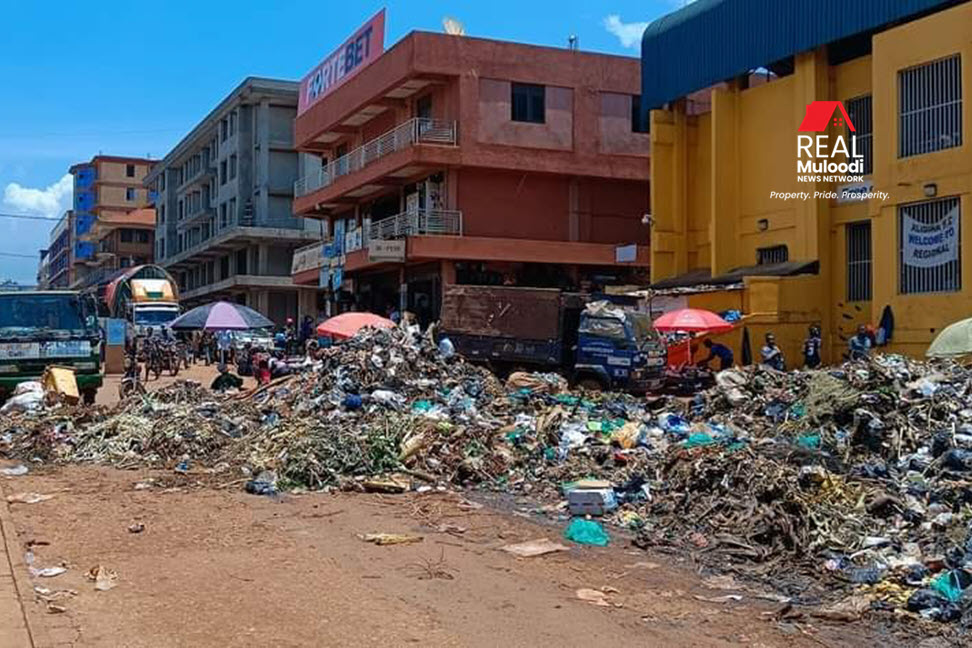UGANDA, Jinja | Real Muloodi News | Jinja City residents are calling on city officials to swiftly address the garbage collection crisis in the newly created city.
Despite enacting by-laws on garbage management, solid waste management continues to be a major challenge in Jinja City.
The garbage that is piling up on the streets has caused various parts of the city to become clogged with uncollected waste, posing a health hazard to residents and restricting movement in the affected areas. Particularly Aldina, Lubas, and Spire roads, are littered with garbage.
Residents and business people have expressed concern about the deteriorating sanitation in the city which will result in the easy spread of diseases.
One Jinja resident said, “there is a need to get a special area where to dump that garbage.”
Lawerence Semaganda, who is LC 1 of the area and also the Director of Alidina Village Garbage Link, the company responsible for collecting garbage in Jinja, says the city’s landfill which is located in Masese has reached capacity, and the roads leading to the site are inaccessible.
“We have a garbage vehicle here, 24/7 to collect rubbish. But since it is the rainy season, the landfill at the base where garbage is dumped is now full and there is trouble accessing it, “Mr Semaganda says.
Prior to this Mr Semaganda says his company was collecting five Isuzu-Forward trucks full of garbage – approximately 10 tonnes – from the city centre daily, which was dumped at the city landfill.

“When it rains, garbage collection is a challenge. During the dry season the garbage collection is manageable,” says Mr Rajab Kitto, the Jinja Spokesperson.
Semaganda requests the city authorities to modernise the landfill as the current one is too small. He also requests that the road leading to the landfill is repaired to ease the delivery of rubbish.
Recycling of solid waste is nonexistent in Jinja, and Semaganda urges investors to consider venturing into the recycling business to produce biogas and manure that can be sold to farmers.
Semaganda also noted that the authorities pay for the collection of garbage from the Jinja Central Market out of local council revenues, but not for private homes.
Private individuals make quarterly payments for Semaganda’s company to collect their garbage. Households with five people pay USh10,000, and those with 15 people pay USh30,000.
WATCH HOW JINJA CITY IS CHOKING ON ITS WASTE



